Top Intuitive Eating Questions
- May 2, 2018
- Last Updated: March 11, 2025
- 10 Comments
- Intuitive Eating
I get so many intuitive eating questions, so as a non-diet dietitian, I thought it would be helpful to compile some answers to intuitive eating for beginners.
Maybe you’re an intuitive eating beginner on the journey to intuitive eating (if so, THIS is for you)!
Maybe you have no interest in learning more about it. Or, maybe you do, but don’t know where to start.
There are so many questions about how to do intuitive eating that I created a whole intuitive eating and hunger ebook about it for you!
Grab Our Meal Prep Ebook to Finally Conquer Meal Prep in the Kitchen
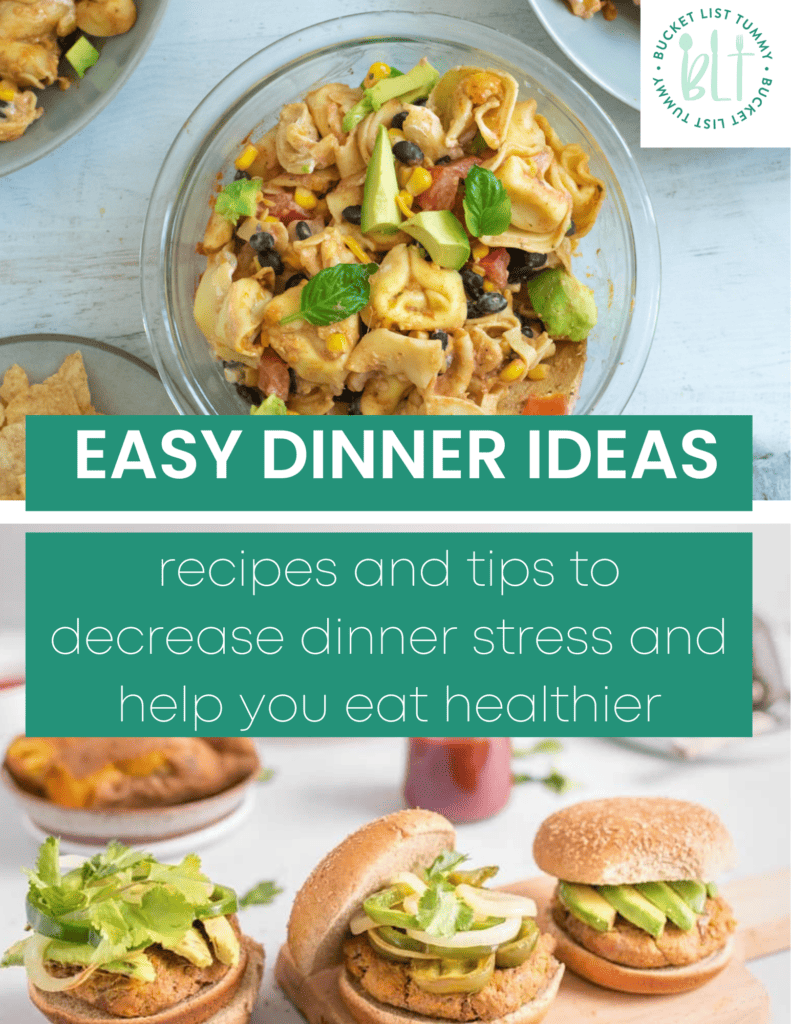
Table of contents
Intuitive Eating For Beginners
Firstly, I’d recommend checking out some of the best intuitive eating books for some background reading.
I can’t say enough good things about them! Body Kindness is also a great read (quick, with lots of pictures) to help with a mentality shift and body changes.
If you are a beginner, I’d recommend reading this post about 5 tips for intuitive eating beginners in your day.
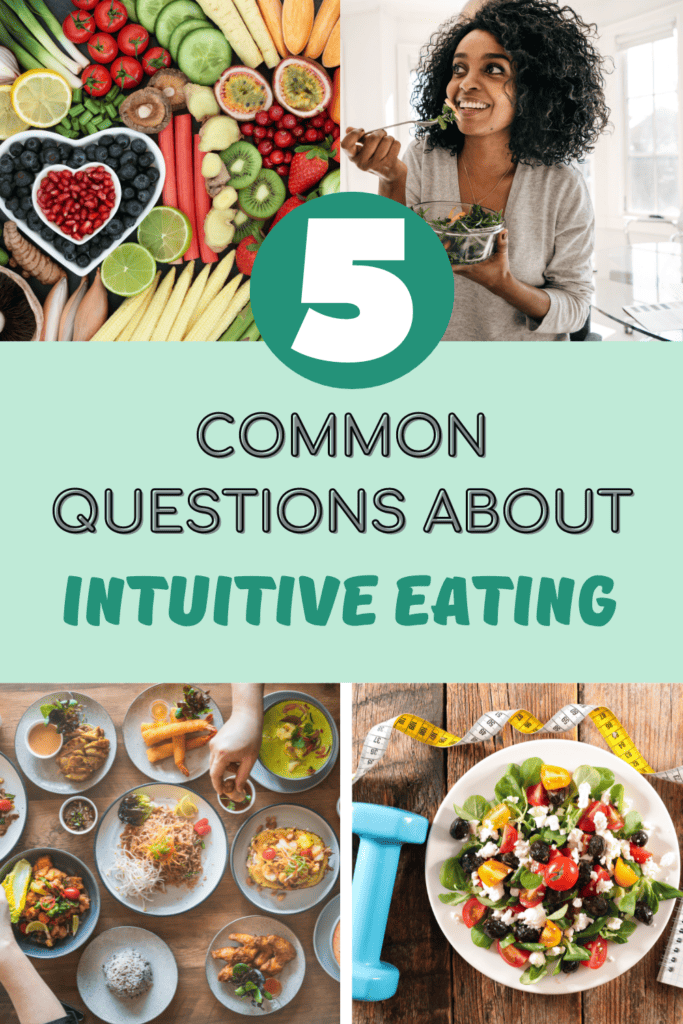
Either way, just remember Intuitive Eating can be messy.
Oftentimes, people are confused about intuitive eating because they’ve been in the diet mindset for so long (see 7 reasons why dieting doesn’t work).
They don’t understand what hunger feels like, they fear fullness and they haven’t developed trust.
The thought of food throughout the day without a strict, guided meal plan can be scary. It’s normal to feel a little out of control in the beginning.
Intuitive Eating Questions to Ask Yourself
When deciding what to eat to better improve your relationship with food, you want to ask yourself some questions.
- What am I in the mood for?
- What did I have earlier in the day/yesterday?
- What do I have on hand?
- What texture do I want?
- What flavor do I want? Sweet, savory, salty
- Do I have any considerations to plan for? For example, an upcoming workout, a long meeting, etc.
- When was the last time I ate?
Grab Our Meal Prep Ebook to Finally Conquer Meal Prep in the Kitchen

Here are some of the common questions many of my clients have. Maybe you’ve had them too. I hope this can provide a little clarity.
Feel free to leave any other questions in the comments – I’d love to address them in future posts!
Top Intuitive Eating Questions
Here are the top questions about intuitive eating I see.
If I Let Myself Eat Anything I want, I’ll Let Myself Go – How do I “control” my eating?
This is probably the most common thought about IE – the fear that if/when we give ourselves unconditional permission, we’ll go overboard.
We think that instead, by regulating intake and sticking to strict rules, we can control and ignore our cravings.
Research tells us this is not true, and in fact, we instead are more likely to overeat and binge on foods when we do have them after restriction.

Instead, when we give ourselves unconditional permission to eat, we learn to trust ourselves.
At first, we may eat that particular food or meal often.
It’s important to know this is NORMAL. It’s been off limits for so long so we want it more.
I like this analogy of how our brains work when we’re told not to do something – If you tell a kid to not play with the red lego (but play with any other color), what color will he play with?
Most likely, the red! It becomes so much more enticing and attractive when we know we can’t have something.

Usually, this food we’ve been restricting is a highly palatable food – high in fat and/or sugar.
It tastes good and is pleasing. Because of those qualities, we’ve told ourselves that it can’t be “good” for us, so we should “limit” it.
But, we’ll never come to terms with that food if we never practice introducing it without a stressful and strict mentality.
And, foods aren’t “good” or “bad” anyway – food is just food.
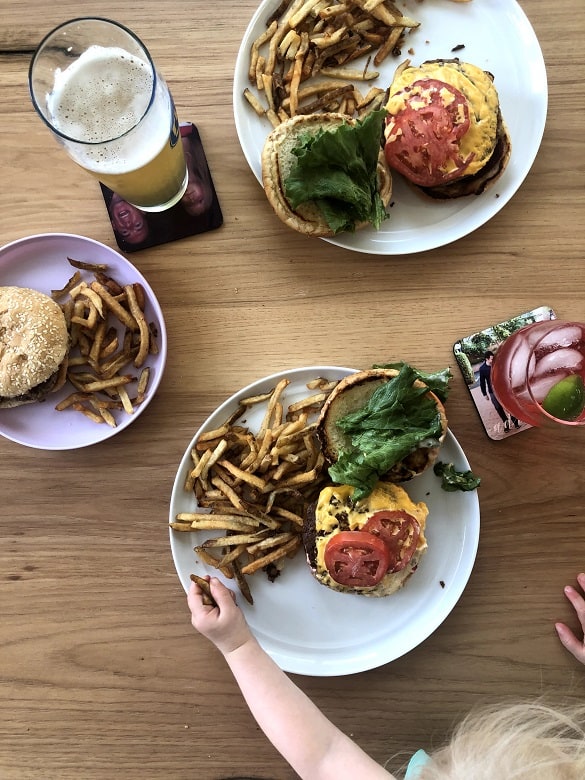
That’s the goal with intuitive eating and normal eating.
To just eat and move on – that’s how we can move beyond food restrictions.
Can You Be Healthy While Eating Intuitively?
Another misconception is that intuitive eating is a completely separate concept from health.
In reality, the two are not mutually exclusive. In fact, intuitive eaters are often healthier. Intuitive Eaters have lower BMI’s and better psychological health indicators.
And we know health is more than just lab results and how much we exercise.
Our mental and social health, as well as our environment, are such important aspects of our overall well-being.

Is Eating Intuitively Self Care?
I’d argue yes, that intuitve eating is a form of self care. Of feeding your body enough.
How? Well, you’re learning to listen to your body. You’re not rebelling against it, but instead, working with it.
You’re cultivating a relationship of trust.
You’re getting rid of the toxic, negative thoughts that used to reign heavy over you – maybe they impacted your mood, your sleep patterns, and your food choices.
Remember, the majority of diets are not sustainable long term – after 6 months, the weight loss is negligible.
In fact, most often, dieting results in weight gain, plus a skewed relationship with food.

Once you realize how giving up the dieting mentality, giving up the number on the scale, and giving up pre-made meals and meal plans feels, you’ll understand that was never healthy in the first place.
Instead, you can focus on things you can control.
Things like listening to your body, moving in a way that feels good to you, enjoying meals socially, and making recipes with ingredients you actually enjoy (not the low-fat fake stuff).
You may enjoy going to the Farmers Market because you like the way fresh berries or tomatoes taste in the summer.
Make it fun and enjoyable. That’s what is sustainable. Plus, it’s great inspiration for toddler veggie recipes.
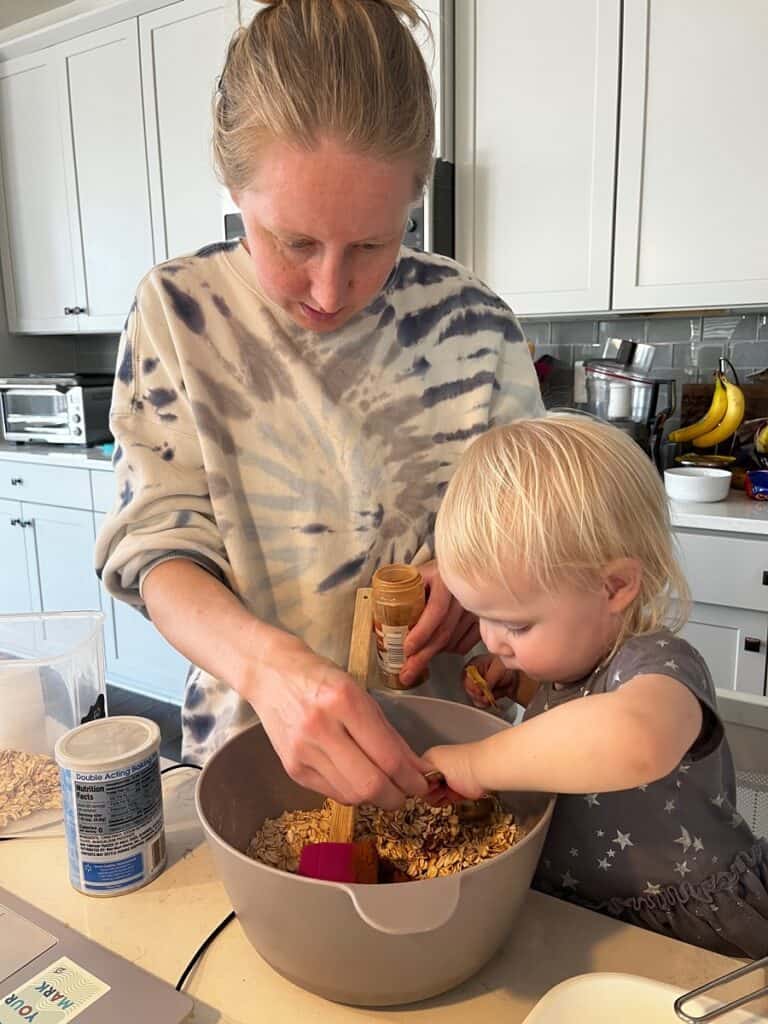
How Do I Know How Much I Should Be Eating?
How do you know how much to eat? I get it. It can be scary to let go of rigidity and any meal plans you used to follow.
You haven’t formed that trust with your body yet to get rid of external rules of what to eat and follow.
And at first, if you’re coming from a disordered eating background, you should work with a professional because intuitive eating isn’t right for you initially.
But, once you’re ready, you’ll know when and how much to eat.
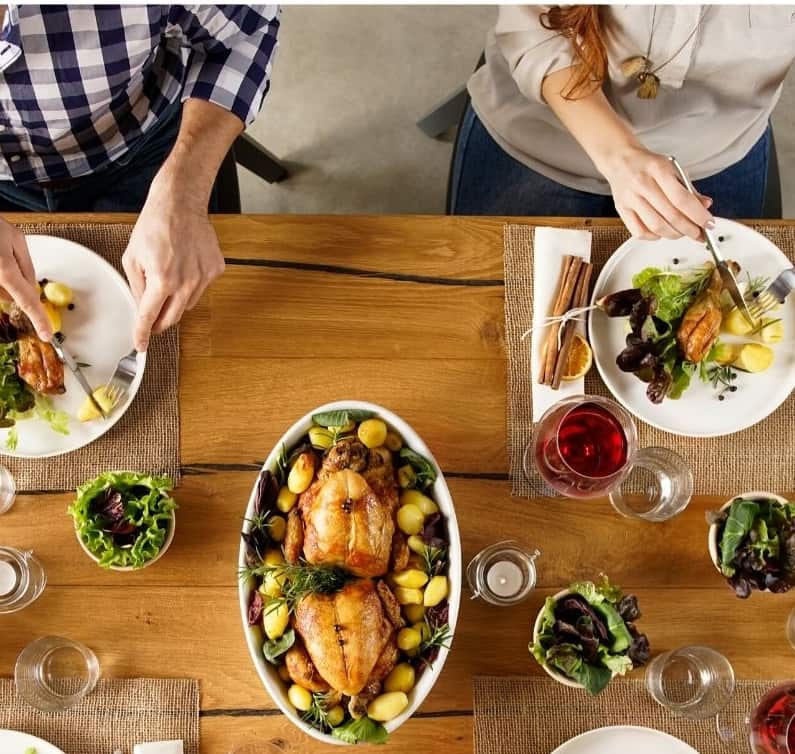
You’ll understand that it may vary by day. Some days you may be ravenous.
Your calorie needs vary each day.
Hungrier days may be mentally harder, initially, but trust that you’re fueling your body with everything it needs.
Other days, you’ll find that you don’t need the whole sandwich or whole bowl of pasta that you ate last night.
Or, maybe you’re craving a lighter chicken strawberry salad for lunch (when in the past, you would skip lunch altogether) after having a balanced, heavier breakfast.
Intuitive eating looks different for everyone.
However, generally, you’re still eating 3 meals and 2-5 snacks/day, depending on your lifestyle, exercise level, stress and medical conditions.
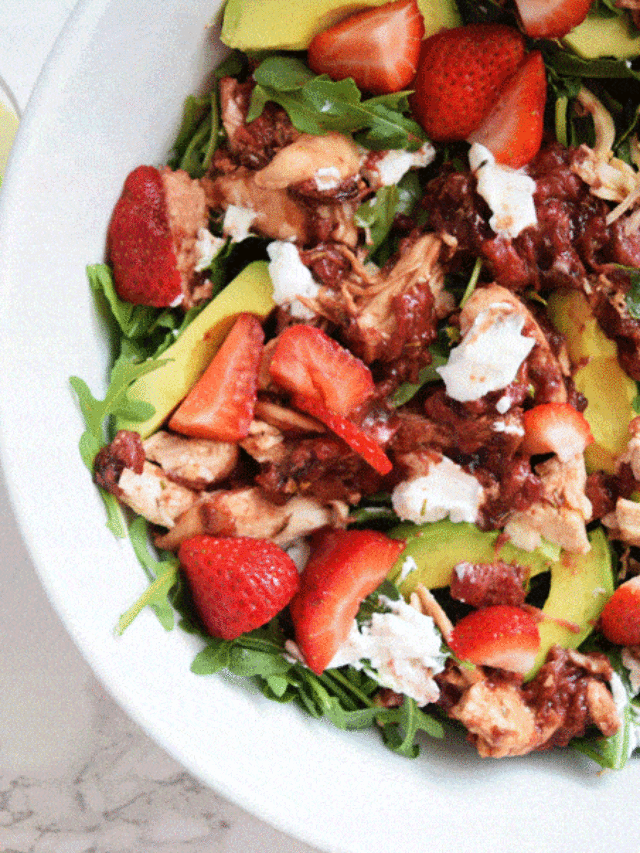
How Do I Know if Intuitive Eating is Right For Me?
Intuitive Eating can be for everyone. I TRULY believe that – if you want it.
We’re meant to be intuitive eaters. I believe that food choices should be natural – we shouldn’t stress about them.
We are all different human beings with different biological functioning systems, so why should a 1,800 calorie meal plan that works for you also work for me?

Final Thoughts
Most importantly, when deciding how to start intuitive eating, remember that intuitive eating is sustainable.
It can last forever, unlike a diet. It’s meant to be more natural.
You can “follow” it when you’re pregnant, when you’re on vacation and when you’re training for a marathon.
Likely, you’ll realize that your appetite and needs vary throughout the day and different seasons of your life.
That’s NORMAL. It’s encouraged for you to change your eating style and habits based on your appetite and nutrition needs.
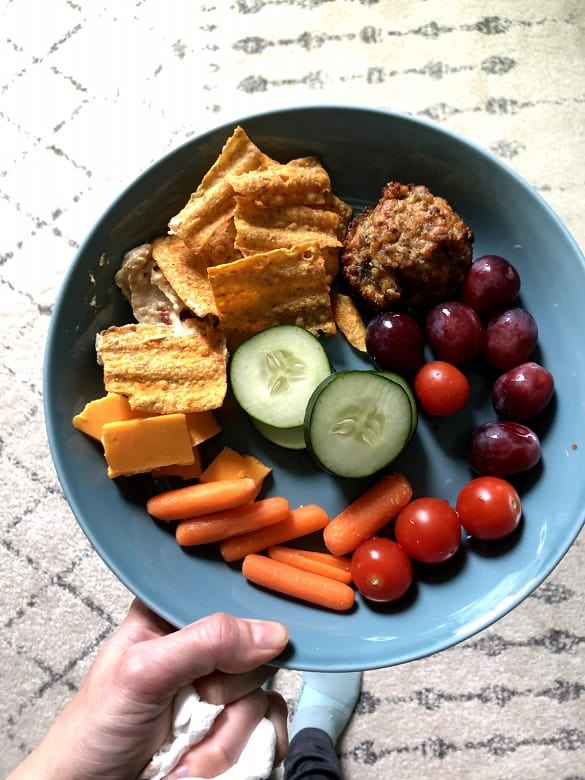
With a diet, you can’t do that. Diets are static, not fluid.
Everyone should understand hunger and fullness cues, and make food choices based on foods they enjoy and that satisfy them.
We should all be aware of how foods make us feel – it’s normal to feel more stuffed sometimes, and less stuffed other times. We are all constantly learning.
Furthermore, everyone should move in a way that makes them feel good. All of these are principles of intuitive eating.
Intuitive eating allows us to form healthy behaviors. Healthy behaviors are sustainable.
Explore More Recipes
Intuitive EatingSupport Bucket List Tummy

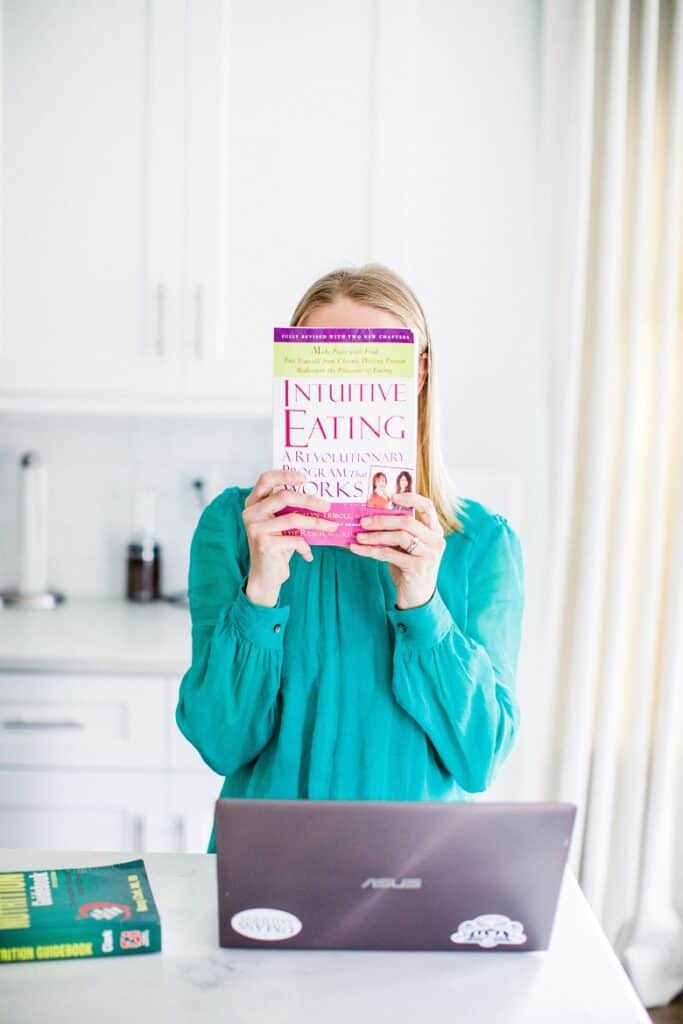


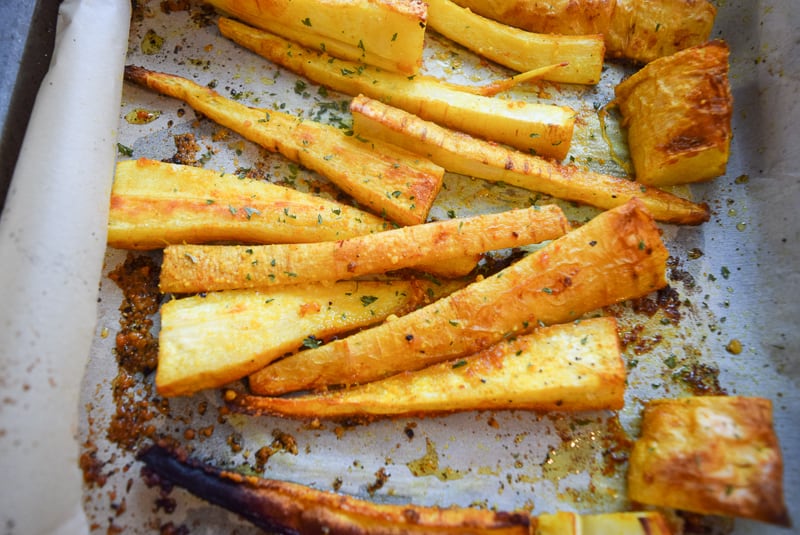
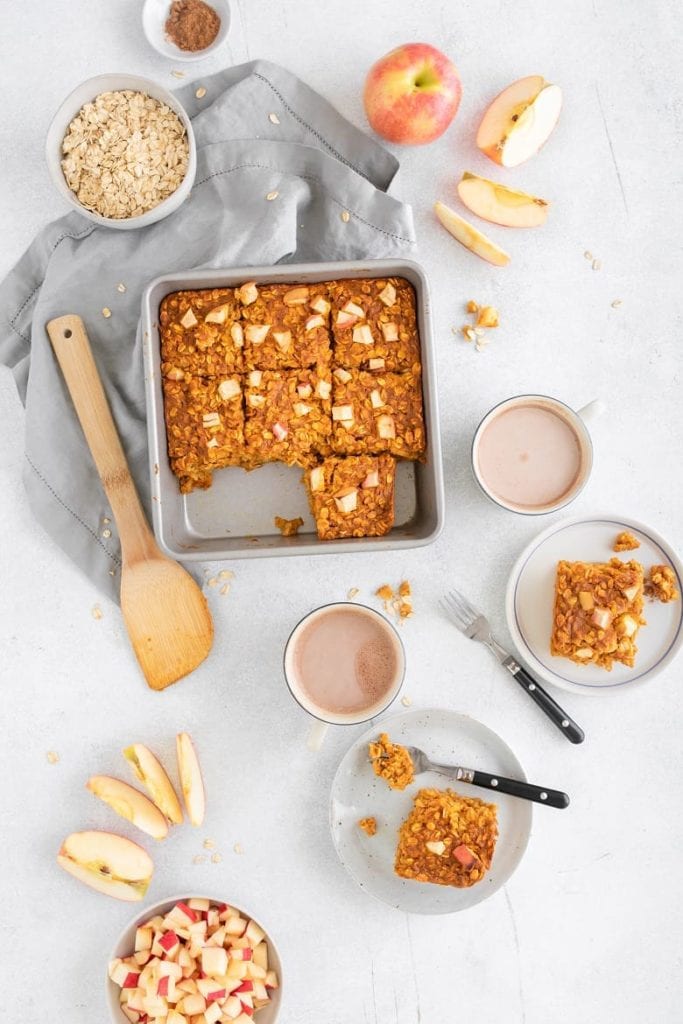


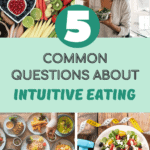
Like This Content?
Support Bucket List TummyLove this post, Sarah! Definitely sharing it with my readers.
These are such great answers – and questions too! I love how passionate you are about intuitive eating ❤️
YES! Intuitive eating I believe is so sustainable too, and I think I have to remember that as i journey back that way after not listening to my intuitive eating signals for so long. It’s hard to let go of those numbers in your head, but that’s only bondage. Freedom from obsession around food is INICREDIBLE, and I can say that I intuitively eat much more than I used to even just a year ago.
I love this! I will have to check those books out.
Wonderful post! I have all three of the books mentioned but have only cracked into body kindness so far. This is a great IE breakdown!
Great post – thank you!
I love all of your IE posts! I can’t wait to check out those books as well.
They are pure gold